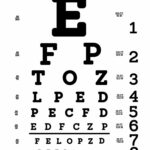Ever gazed at hotel deals, eyes glazing over a litany of perplexing terms? Half board—does it mean half the fun, or half the food? Let’s disentangle this common, yet occasionally confounding, lodging lingo.
Decoding Half Board: The Basics
At its core, half board represents a lodging package that includes two meals as part of the accommodation cost. Typically, these meals are breakfast and dinner. However, this can sometimes fluctuate depending on the hotel’s specific offerings. Before locking in that alluring rate, scrutinize the fine print; ensure you know precisely which repasts are covered.
Delving into the Details: What’s Usually Included
Breakfast generally manifests as a buffet-style spread, offering a plethora of options from continental fare to hearty, cooked breakfasts. Dinner might also be a buffet, or it could be a set menu. Some establishments proffer a carte du jour from which half-board guests can select, potentially with restrictions on certain premium items. Beverages, particularly alcoholic ones, are almost invariably not included in the half-board rate. Water, juice, or tea during breakfast might be exceptions. This policy is ubiquitous, so be prepared to foot the bill for your libations.
The Nuances of “Half”: Is it really half?
While the name suggests a 50% food provision, the reality is more nuanced. The value proposition of half board hinges on your eating habits and proclivities. If you relish substantial breakfasts and dinners, and anticipate minimal snacking or lunching, then half board could prove economical. Conversely, if you prefer lighter meals or plan on exploring local culinary delights during the day, then the included dinner might become a constraint rather than a convenience. This is where circumspection is key.
Unpacking the Advantages of Half Board
One of the foremost advantages is budgetary predictability. Knowing that two meals are already accounted for simplifies expense tracking, particularly for families or those on stringent budgets. It also streamlines the vacation experience. No need to scour for restaurants after a long day of sightseeing; dinner awaits you conveniently at your hotel. This aspect of convenience can’t be overstated, especially with tired children in tow.
Furthermore, for hotels located in remote areas or resorts with limited dining options, half board offers a pragmatic solution. It ensures access to sustenance without requiring extensive travel to alternative eateries. In these scenarios, half board transitions from a mere option to a veritable necessity.
Potential Drawbacks: The Caveats to Consider
Flexibility, or rather the lack thereof, constitutes the primary disadvantage of half board. You are, in effect, committing to dining at the hotel for dinner each night. This can curtail spontaneous exploration of local cuisine. If your travel philosophy embraces culinary adventures, half board might feel unduly restrictive.
Another potential pitfall is the quality of the included meals. While many hotels strive to provide delectable fare, the quality can vary. It’s prudent to peruse online reviews or solicit recommendations to gauge the gastronomic caliber of the hotel’s half-board offerings. Remember, not all buffets are created equal.
Half Board vs. Full Board vs. All-Inclusive: A Comparative Analysis
Distinguishing half board from its counterparts—full board and all-inclusive—is crucial. Full board encompasses three meals daily (breakfast, lunch, and dinner), while all-inclusive typically includes all meals, snacks, and beverages (including alcoholic ones), as well as various on-site activities and amenities. The optimal choice depends on your individual travel style and anticipated consumption patterns. A ravenous clan might benefit from all-inclusive, while a more moderate duo could find half board perfectly sufficient.
Questions to Ponder Before Booking
Before committing to a half-board package, pose these salient questions: What specific meals are included? Are beverages included with these meals? What are the dining options available to half-board guests (buffet, set menu, à la carte)? What is the hotel’s cancellation policy regarding the meal plan? Addressing these queries upfront can mitigate potential disappointment and ensure a seamless experience.
The Geographic Variable: Regional Interpretations
It’s worth noting that the interpretation of half board can vary geographically. In some regions, “half board plus” might include a limited selection of beverages during dinner. Similarly, the timing of meals can differ. Always verify the specifics with the hotel directly to avoid misunderstandings predicated on regional disparities.
Concluding Thoughts: Is Half Board Right for You?
The decision to opt for half board is ultimately a personal one, contingent upon your individual predilections, budgetary constraints, and travel aspirations. By carefully weighing the advantages and disadvantages, and by diligently scrutinizing the details of the hotel’s offerings, you can make an informed choice that optimizes your vacation experience. Consider your consumption habits, appetite for culinary exploration, and the location of your accommodation. Armed with this knowledge, you can confidently navigate the labyrinthine world of hotel packages and secure the ideal lodging arrangement for your next sojourn.









Leave a Comment